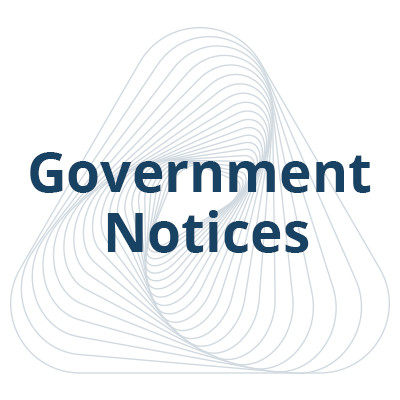
Specialised Education Programmes or Modules in Key Capacity Areas
Details
Description
Call Updates
Update: 27 April 2023
DIGITAL-2022-SKILLS-03-SPECIALISED
Number of proposals submitted: 28
Number of inadmissible proposals: 3
Number of ineligible proposals: 5
Number of above-threshold proposals: 14
Total budget requested for above-threshold proposals:
EUR 78, 222, 096.77
Jan 26, 2023 11:24:44 AM
28 proposals are received following upon the call closure.
Nov 23, 2022 12:12:16 PM
Please note that 'ethics' does not apply to this topic. However, if the SEP submissions blocks the application by indicating an error after fulfilling part A (which also includes ethics questionnaire by default), please answer all ethics related questions as ‘NO’ so you can submit proposals.
Sep 29, 2022 12:00:00 AM
The submission session is now available for: DIGITAL-2022-SKILLS-03-SPECIALISED-EDU(DIGITAL-SIMPLE)
Specialised education programmes or modules in key capacity areas
TOPIC ID: DIGITAL-2022-SKILLS-03-SPECIALISED-EDU
Programme: Digital Europe Programme (DIGITAL)
Work programme part: Digital Europe Work Programme 2021-2022
Call: Advanced Digital Skills (DIGITAL-2022-SKILLS-03)
Work programme year: DIGITAL-2021-2022
Type of action: DIGITAL-SIMPLE DIGITAL Simple Grants
Type of MGA: DIGITAL Action Grant Budget-Based [DIGITAL-AG]
Deadline model: single-stage
Planned opening date: 29 September 2022
Deadline date: 24 January 2023 17:00:00 Brussels time
Outcomes and deliverables
Gains from Investment in key capacities can only materialise if there are enough people to design, deploy and use them. At present, all Member States face shortages of digital specialists and the training opportunities in digital areas are missing in the EU, compared to other countries. Specialised courses, such as Master’s courses in domains like Artificial Intelligence are not uniformly available in all Member States and concentrated in some regions.
The action will contribute to expand the education offer across Europe, by increasing the number of courses, jointly designed by universities from different Member States and associated countries together with excellence centres and businesses active in the domain. The impact will be twofold: an increase of courses offer all over the EU and the development of dynamic digital ecosystems where academic excellence, research and innovative industries work together to attract and retain the best talents worldwide.
Objective:The action aims at increasing and improving the offer of education programmes and the number of students specialised in key capacity areas. The offer will be expanded in terms of geographical distribution (including outermost regions and other disadvantaged regions), number of opportunities and relevance to latest technological developments. The actions also aim at supporting more inter-disciplinary courses that can equip professionals with relevant advanced digital skills and increase diversity among students and future digital experts (for example data analytics skills for professionals in different sectors). The action will support cooperation between higher education institutions and the private sector, together with research and excellence centres in digital technologies, including those funded in the other actions of the programme. The goal is to encourage organisations to work together and develop ecosystems of excellence able to train, attract and retain the best digital talents, including by contributing to closing the gender gap in these fields (latest available data from ESTAT report that women represent only 18.5 % of ICT specialists in the EU). This action will contribute to the implementation of the Digital Education Action Plan 2021-2027.
Scope:The chosen projects shall design and deliver a tertiary degree education programme of 60, 90 or 120 academic credits (The European Credit Transfer and Accumulation System - ECTS). The calls in the first two years will address the following topics: Data, Internet of Things (IoT), AI, Blockchain, cybersecurity, HPC, quantum, among others and interdisciplinary courses, including the teaching of the above areas in a non-ICT education field (e.g. AI applications for agriculture or cybersecurity and law etc..). Proposals can address only one technological areas, or more, or only one inter-disciplinary programme, with a specific focus on one sector. Tertiary education institutions in consortia with relevant competence and excellence centres and industry will receive funding to set up and strengthen excellent courses in the above areas. Partners in these consortia will be encouraged to share expertise, facilities, staff and learning material Inter-sectorial mobility between Higher Education Institutions and the private sector is also encouraged. These courses need to reflect the latest state of the art of the technologies, provide opportunities to students to have access to laboratories and testing and experimentation facilities and making use-where appropriate- of the EU data spaces. They will also make use of digital technologies to provide learning experiences that are flexible in time, scope end place, as appropriate. Activities to exchange on good practices to involve and interact with external stakeholders will also be encouraged. Particular attention shall be given to aspects such as green application and environmental impact of these technologies. The projects should also aim at increasing diversity among participants to the courses and ensure that experts will be trained to detect and prevent bias in the future developments.
The following activities can be eligible for funding, among others:
- partnerships for higher education institution, research/excellence centres in digital technologies and innovative businesses. They will need to be sustainable over time and show a high degree of integration. Actors involved in the partnership will need to define a common education and training agenda that could result not only in an improved offer for students, with clear learning outcomes, but also increase their international attractiveness; adequate measures of quality assurance and quality monitoring, as well as activities leading to mutual learning and exchange of good practices, will be implemented;
- upgrading technical equipment, to ensure that students have access to the latest technologies available in the market and improve facilities, as well as explore innovative ways to use technology in teaching and learning;
- tackling the shortage of teaching staff and providing access to high quality teaching; incentives could be provided for professors, experts and top researchers in digital areas to contribute to the teaching activities;
- providing support to students, via scholarships or fee waivers in order to allow everyone to have access to high-quality education in digital areas and to increase diversity in education and research.


